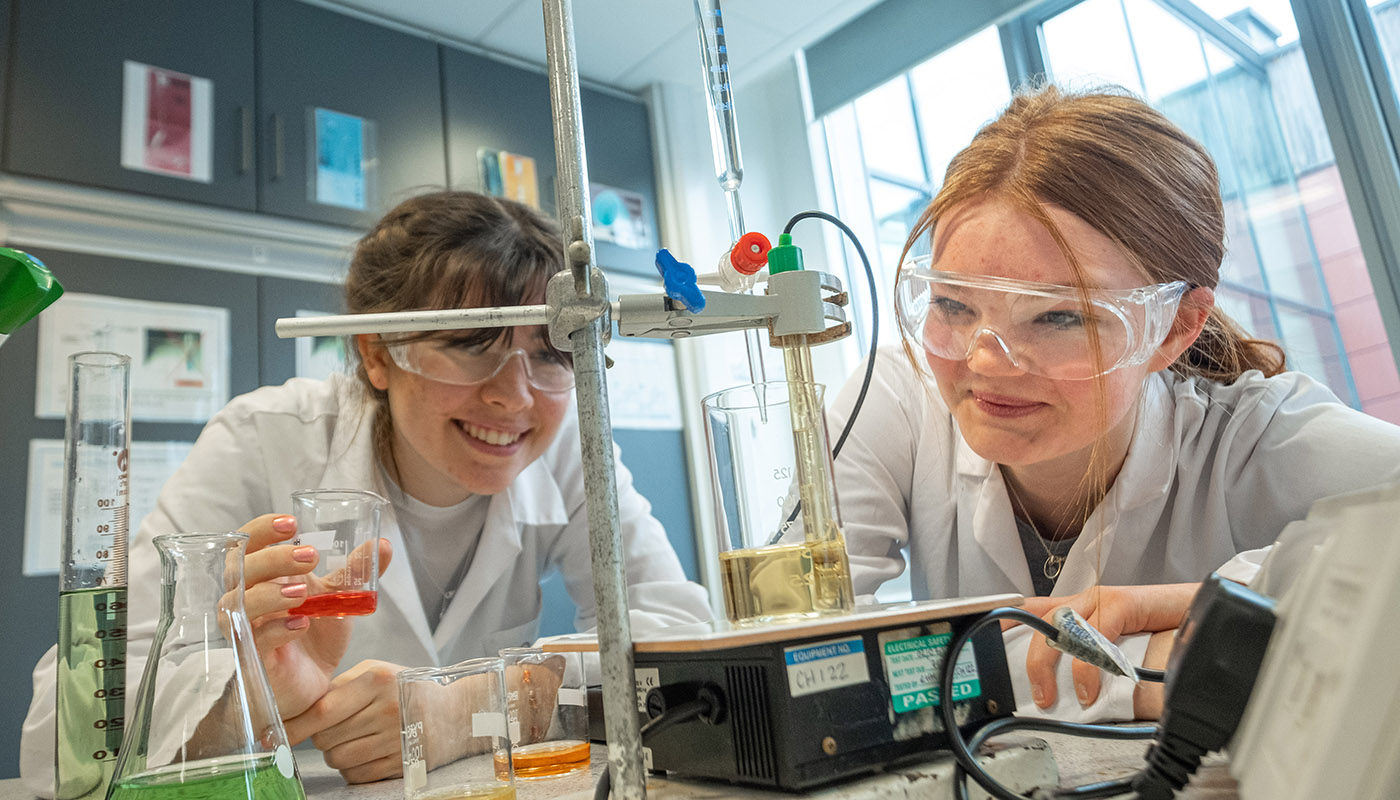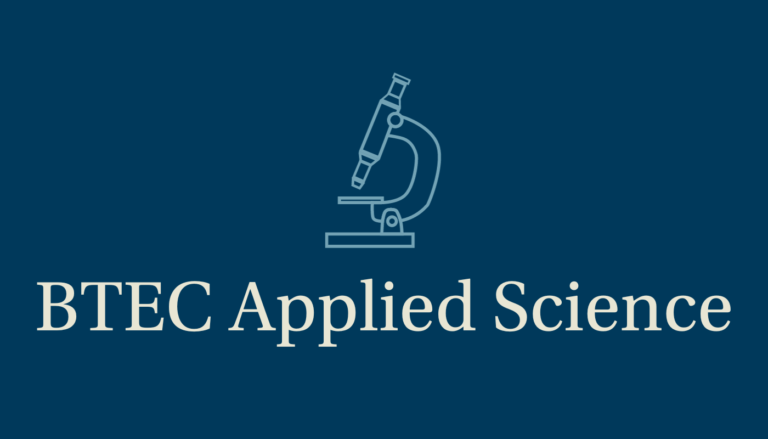AAQ (new BTEC) Applied Science

AAQ (new BTEC) Applied Science is equivalent to one A level. The course covers a variety of scientific modules including: the basics topics of science, practical techniques, laboratory skills, scientific investigations and analysing scientific data. The course is composed of both internally assessed units (coursework) and externally assessed units (examination) in both Year 12 and Year 13.
We run a programme of enrichment activities including and talks from visiting academics and from universities on careers in science and related areas.
The AAQ (new BTEC) Applied Science course is recognised by a large number of universities. Most AAQ (new BTEC) students go to study for degrees in areas such as science, bio-veterinary science, nursing and education. It can lead to careers in healthcare, medical sciences, community work, forensics and many other fields.
*subject to confirmation of examination board
Unit 1 Principles and Applications of Biology
This unit explores the key components of biological science. It will examine cells and tissues, their varied structures and functions and the biological components that interact with their existence.
The topic areas covered in this unit include:
- animal and plant cells and tissues, including specialised cells
- biological molecules, including water, carbohydrates, proteins and nucleic acid • cell transport
- enzymes activity
Unit 2 Principles and Applications of Chemistry
Structure of the Periodic Table and its implications on physical and chemical properties of substances, through analysis of different bonding methods
In this unit, students will re-examine basic chemistry (the periodic table, atomic and electronic structure, bonding and structure) with more advanced concepts such as ionisation energy, electronegativity, polarity, molecular shape and intermolecular forces. Periodicity will be explored through the study of Period 3 elements and their compounds, focusing on changes in oxidation number, physical and chemical properties, and making predictions for other elements. Students will learn about the main branches of physical chemistry (chemical kinetics, energetics and equilibrium), perform mole calculations, and consider the impact of green chemistry in the chemical industry.
Unit 3 Principles and Applications of Physics
Waves and their applications; force principles and their application in transportation and construction of electrical circuits
In this unit, students will learn about waves and how electromagnetic waves are the basis for our modern communication systems. Mobile phones, Wii-FI and Bluetooth©. This unit will enable students to develop an insight into how these systems work and the activities they perform. The study of motion and laws of motion are also important when developing safety products for our everyday lives. Seat belts, air bags and crumple zones are just three innovations that came about through the study of motion. Electricity, electrical circuits and their relationship to energy usage, are also very important as our use of electrical devices continues to rise. By using physics, it is possible to understand how we can create energy alternatives that can help us develop greater more sustainability in our future environment.
Unit 4 Practical Scientific Procedures and Techniques
Practical applications across the sciences, including chromatography, colorimetry and electrical circuits.
This unit introduces students to standard laboratory equipment and techniques, including titration, colorimetry, chromatography, calibration procedures and laboratory safety. Through the practical tasks in the unit, students will develop proficiency in the quantitative analytical techniques of titration and colorimetry, including learning to calculate the concentration of solutions. Students will use measurement of temperature to study cooling curves and be introduced to paper and thin-layer chromatography (TLC). Students will also have the opportunity to calibrate equipment and will be encouraged to be aware of the safety aspects of given laboratory procedures and techniques.
Unit Scientific 5 Investigation Skills
Investigative research, including planning, data collection, analysis and evaluation.
In this unit, students will carry out an individual investigative project that the student has chosen in collaboration with the teacher. Students will carry out a scientific literature search and review, considering the project’s aims and objectives and formulating a suitable hypothesis that can be tested by using practical work. Students will then plan and carry out the project safely using scientific investigation skills and project management skills. Finally, students will prepare an evaluative report that will consider the project outcomes and suggest amendments that may have improved those outcomes.
The Pearson BTEC Level 3 National Extended Certificate in Applied Science (AAQ) is an Alternative Academic Qualification (AAQ) designed for post-16 students with an interest in the Science sector and aiming to progress to higher education or a related apprenticeship or employment. Equivalent to one A level in size, it is suitable for students looking to develop their applied knowledge and skills in Science as part of a study programme alongside A levels.
For all new students joining us in September, review your GCSE Science notes on cells from Biology, the periodic table and bonding from Chemistry and waves from Physics.
Study Level
AAQ (new BTEC)
Exam Board
Pearson*
to be confirmed November 2024
Contact Details
Dr C Tweed
Head of Department
tweed_c@sjd.ac.uk
